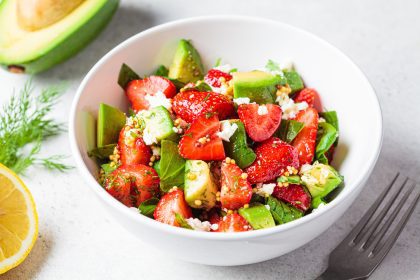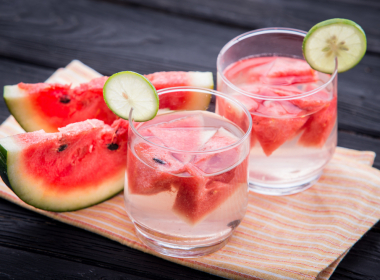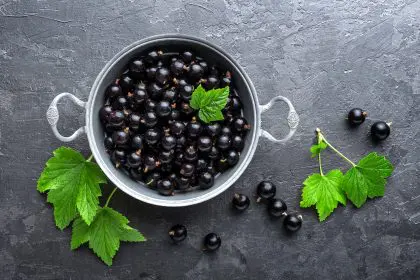In an era where environmental toxins and daily stressors constantly challenge our health, scientists have discovered that certain foods possess remarkable protective properties. Recent research reveals that incorporating these defensive foods into your diet could significantly enhance your body’s natural ability to fight disease and maintain optimal health.
The science of protective foods
At the heart of these protective foods lies their ability to combat free radicals, unstable molecules that can damage cells and contribute to various diseases. Research from the National Institutes of Health shows that these foods contain powerful compounds that actively shield our bodies from harmful environmental factors and internal stressors.
Understanding free radicals and oxidative stress
Our bodies naturally produce free radicals during normal metabolic processes, but environmental factors like pollution, stress, and processed foods can increase their production to harmful levels. This excess leads to oxidative stress, a condition that accelerates aging and increases disease risk. Protective foods help neutralize these damaging molecules through their rich antioxidant content.
The power of antioxidants
Antioxidants serve as your body’s natural defense system against cellular damage. These compounds, found abundantly in certain foods, work like microscopic shields, protecting your cells from harmful molecules. Research shows that people who consume antioxidant-rich foods regularly have lower rates of chronic diseases and better overall health outcomes.
Natural immune system boosters
Protective foods do more than just fight free radicals – they actively strengthen your immune system. Scientists have discovered that certain nutrients in these foods enhance the production and function of immune cells, helping your body better defend against infections and diseases.
The gut-protection connection
Recent studies have revealed a crucial link between protective foods and gut health. These foods support beneficial gut bacteria, which play a vital role in immune function and overall health. A healthy gut microbiome, nourished by protective foods, helps defend against various diseases and supports optimal nutrient absorption.
Brain protection benefits
Research from leading neuroscience institutes shows that protective foods can help safeguard brain health. These foods contain compounds that support cognitive function, protect against age-related decline, and may even help prevent neurodegenerative diseases. Regular consumption of these foods has been linked to better memory and increased mental clarity.
Heart health defenders
Cardiovascular research indicates that protective foods play a crucial role in heart health. These foods help maintain healthy blood pressure levels, support proper circulation, and protect blood vessels from damage. Long-term studies show that individuals who regularly consume protective foods have significantly lower rates of heart disease.
Cancer-fighting properties
Many protective foods contain natural compounds that may help prevent cancer development. Research shows these foods can inhibit tumor growth, reduce inflammation, and support the body’s natural defense mechanisms against cancer cells. While no single food can prevent cancer, a diet rich in protective foods may significantly reduce cancer risk.
Skin and cellular protection
The benefits of protective foods extend to skin health and cellular regeneration. These foods provide essential nutrients that support collagen production, protect against UV damage, and promote healthy cell renewal. Regular consumption can lead to improved skin health and slower visible aging.
Anti-inflammatory effects
Chronic inflammation underlies many modern diseases, but protective foods can help combat this hidden threat. These foods contain compounds that naturally reduce inflammation throughout the body, potentially preventing various chronic conditions and supporting overall health.
Stress response and adaptation
Modern life brings constant stress, but protective foods can help your body better adapt to these challenges. These foods support the production of stress-response hormones and help maintain balance in your body’s systems during difficult times.
Energy and vitality boost
Beyond their protective properties, these foods can significantly boost energy levels and overall vitality. They support efficient cellular energy production and help maintain steady energy levels throughout the day, reducing fatigue and improving productivity.
Digestive system support
Protective foods actively support digestive health through multiple mechanisms. They provide essential fiber for healthy digestion, support beneficial gut bacteria, and contain enzymes that aid in nutrient absorption. A well-functioning digestive system is crucial for overall health and disease prevention.
Weight management benefits
Research shows that protective foods can aid in maintaining a healthy weight. These foods tend to be nutrient-dense while being relatively low in calories, helping you feel satisfied while supporting your body’s nutritional needs. They also help regulate metabolism and blood sugar levels.
Seasonal protection strategies
Different seasons bring different health challenges, but protective foods can help your body adapt. Seasonal eating patterns that incorporate protective foods appropriate for each time of year can provide optimal defense against seasonal health challenges.
Long-term health investment
Incorporating protective foods into your diet represents a valuable investment in your long-term health. Studies show that consistent consumption of these foods over time leads to better health outcomes and reduced risk of chronic diseases later in life.
Making protective foods practical
Incorporating protective foods into your daily diet doesn’t require dramatic changes. Small, consistent additions to your meals can make a significant difference. Starting with one or two new protective foods and gradually expanding your repertoire can lead to sustainable dietary improvements.
Environmental considerations
The benefits of protective foods extend beyond personal health to environmental sustainability. Many of these foods have a lower environmental impact than processed alternatives, making them a choice that benefits both personal and planetary health.
Future of food protection
Ongoing research continues to uncover new benefits of protective foods and identify additional compounds that can enhance our health. Scientists are discovering novel ways these foods interact with our genes and influence our health at the molecular level.
The evidence supporting the importance of protective foods in our diet continues to grow stronger. By making conscious choices to include these foods in our daily meals, we can actively participate in protecting our health and enhancing our well-being. Remember that small, consistent changes in eating habits can lead to significant improvements in health over time. Consider consulting with healthcare providers or registered dietitians for personalized advice on incorporating protective foods into your diet based on your specific health needs and goals.















